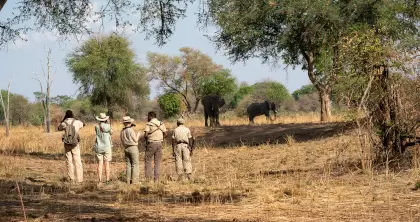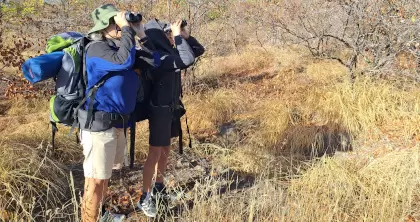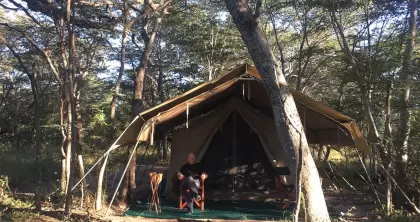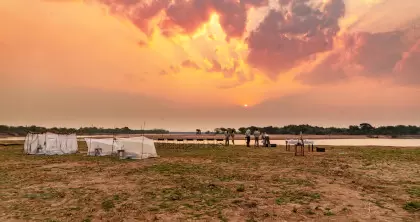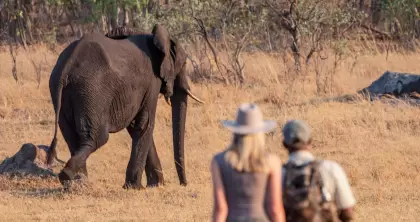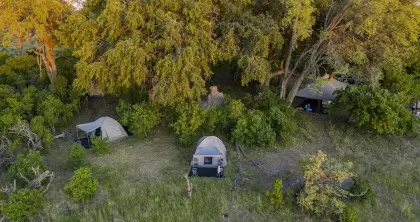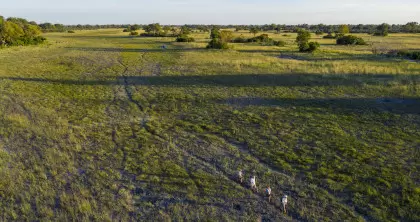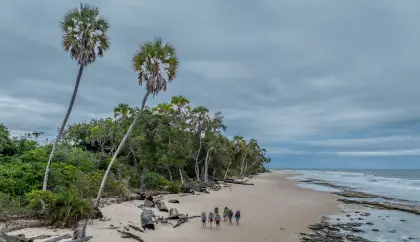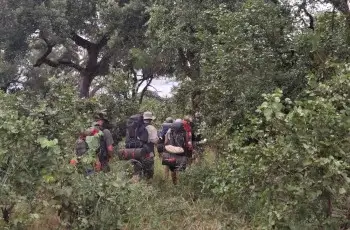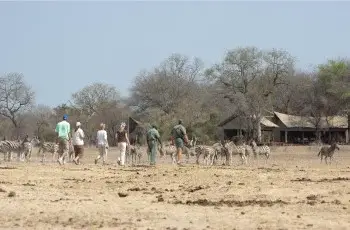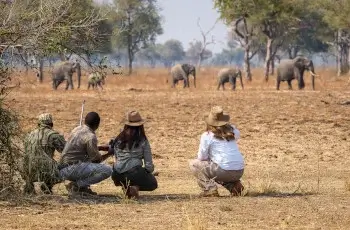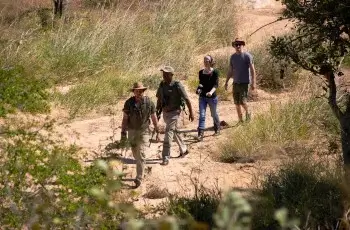Different Types of Walking Safaris
At African Travel Gateway we discern between four types of walking safaris. The main criteria for a walking safari is that it takes place in an African wilderness area, that naturally supports “plains” and “big” game. Plains game refers to animals that are herbivores and not potentially dangerous to humans. These could include giraffes, impala, kudu wildebeest, and the like. Big game refers to animals, that over the centuries have been recognized as potentially dangerous to humans, and include the big 5 (ie: lion, leopard, rhino, buffalo, and elephant) but also include animals such as crocodiles and hippopotamuses.
Primitive Walking Safaris
These are the purest form of walking safaris and can be experienced in the Kruger National Park. They offer trialists a very real and very close encounter with the African wild. Three nights in length, these walking safaris are guided by two well-experienced wilderness rangers. Guests carry their own backpacks containing their food, tent, water & clothes and under the guidance of the rangers explore a vast wilderness area with big game. There are no permanent campsites and no toilet facilities. The trialists set up camp at different locations each night, and experience the diverseness of wildlife and immense beauty that these wilderness areas offer.
Walking Safaris from Permanent Safari Camp
A 2 - 4 day walking safari conducted from a permanent safari camp or lodge. A safari guide would take guests out into the bush for 3 - 4 hour game walks each morning and afternoon, but always returning to the camp or lodge. These are popular in places like the Kruger Park. The emphasis is on a holistic interpretation of the bush including tracks, sights, sounds, smells, birds, insects etc…Over the few days, guests become immersed in the day cycles of the wilderness and can enjoy the comfort of a soft bed and proper bathing facilities.
Mobile or Classic Walking Safaris
A 2 - 4 day mobile walking safari in which guests walk, under the guidance of a safari guide from camp to camp. These camps can take the form of temporary tented camps set up ahead of guests by a support team, or more permanent camps that remain in place. These are considered to be classic walking safari, and carry a certain romantic appeal of a past era, as this is very much how the explorers and hunters of the past used to travel or “safari”. This type of walking safari feels more like a journey as guests are guided through varying habitats and landscapes and always sleep in a different setting.
Day Walks from a Safari Lodge
A 2 - 3 hour day walk under the guidance of a safari guide in a big game area to view game, birds, plants and other signs one can pick up in the bush. These are conducted by nearly all safari lodges and camps in Southern Africa, often as a filler between game drives, or as a main activity in the morning or afternoon. These walks are very much an optional activity whereas the main safari activities are in fact game drives.
Your Safari Planning starts here.
 Learn from our experience.
Learn from our experience.
 Expert advice on safaris & logistics.
Expert advice on safaris & logistics.
 Supportive ‘one on one’ service.
Supportive ‘one on one’ service.
Quick Enquiry

